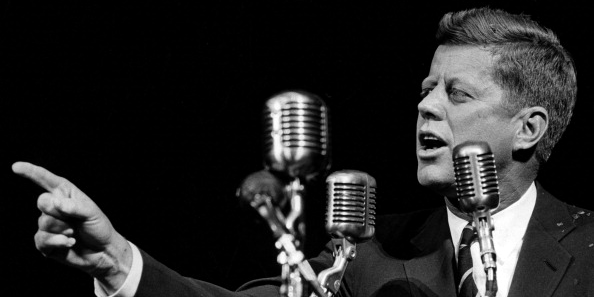
This post was originally published on Linkedin Pulse.
The greatest achievement of John F. Kennedy’s presidency was resolving the Cuban Missile Crisis in the fall of 1962.
Agreement wasn’t a foregone conclusion. Kennedy himself calculated that the chance of a nuclear catastrophe was at least one in three, maybe higher. But he had learned a lot about negotiating from his failed summit talk with Soviet Premier Nikita Khrushchev a year earlier in Vienna. Those lessons still apply today. And they apply to everyday transactions.
First, Kennedy was agile strategically.
Among his own advisors, hawks argued strongly for immediate attacks on the missile sites being built in Cuba. Kennedy understood that military action might soon be necessary but he was determined to use the limited time available to pursue alternatives that wouldn’t trigger World War III. Imposing a blockade on Cuba (he called it a “quarantine”) was less provocative and gave him the chance to negotiate.
Second, he stress-tested his options by actively seeking counsel from experts with widely divergent views.
As a result, he avoided the “confirmation bias” trap, that is, being told only what others thought he wanted to hear. As a result, he fully understood the risks entailed in whatever path he might take.
Third, he used multiple channels of communication, instead of relying solely on formal messages telexed back-and-forth between Washington and Moscow.
Much later it was learned that Kennedy’s brother Robert (who was also Attorney General) held three secret meetings with Soviet Ambassador to the US, Anatoly Dobrynin. In these private sessions they floated proposals and developed a measure of personal trust.
Fourth, the President understood that the other side was not monolithic.
Just as with his White House advisers, there were hawks and doves within the Kremlin. He had to craft a resolution that would have sufficient support within both governments, but he didn’t have to please the hardest-to-please parties.
Fifth, Kennedy allowed Khrushchev to save face.
In return for the Soviets’ removing their missiles in Cuba, the president publicly pledged that the United States would never invade that country. Given the humiliating Bay of Pigs fiasco in 1961, there was little likelihood that the US would make another such attempt, but the guarantee gave the Premier something he could trumpet as a victory. My friend Bill Ury calls this tactic “building a golden bridge.” It enables a counterpart to justify an agreement to others (and also to himself).
Finally, Kennedy enriched the deal with a side agreement.
On the twelfth day of the standoff, with tensions mounting, Khrushchev sent a letter that made it seem that a deal was imminent. But then several hours later a more belligerent message appeared, with added demands, including insistence on US removal of Jupiter missiles it had installed in Turkey, bordering the Soviet Union.
That issue was potentially a deal-killer, as the Americans didn’t want to appear as if they were blackmailed into making a significant military concession. But it was suggested (apparently by Secretary of State Dean Rusk) that President Kennedy reply formally to the initial, more conciliatory Soviet proposal, and then have Robert Kennedy privately ask Ambassador Dobrynin deliver the written letter to Khrushchev along with an oral message to Khrushchev that the US missiles in Turkey would be withdrawn.
These six elements were all critical parts Kennedy’s negotiation strategy. They were bound together by a tough-minded appraisal of the situation. Like a chess master, Kennedy played both sides of the table, thinking several moves ahead, trying to anticipate how the Soviets might respond to American actions. He didn’t wish away the risks. He allowed for possible miscalculation on their part, rather than counting on them to respond “rationally” to the carrots and sticks he might deploy.
The same kind of tough-mindedness is essential in our own negotiations, even though far less is at stake. Having that attitude compels us to confront that whatever unfolds won’t be fully under our control. Whoever we deal with may be as determined—and fallible—as we are ourselves. Recognizing that reality compels us to be both agile strategically and creative in executing our plans.

About the Author
Professor Mike Wheeler's current research focuses on negotiation dynamics, dispute resolution, ethics, and distance learning. He is the author or co-author of eleven books, and his self-assessment app—Negotiation360—was released early in 2015. Professor Wheeler is developing a new HBX program on Negotiation which will launch in early 2017.







